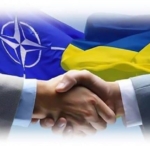The processes unfolding in Russia testify to the Kremlin’s preparation for large-scale territorial expansion into Europe. During 2024, spending on the army and defense industry will for the first time make up a third of all budget expenditures. In particular, under the National Defense budget section, Russia plans to spend 6% of the GDP, which is 70% higher against 2023. It is predicted that the financing of the Russian army in 2025-2026 will further increase: by the end of 2026, the Russian army will likely amount to over 2 million personnel.
Also, this timeline coincides with the forecasts drawn by leading think tanks that consider 2027 as the approximate date of the start of Russia’s war against Europe. Before that, Russia will have weakened Europe in every possible way with the help of the said hybrid threats in order to make it as vulnerable as possible ahead of an imminent strike. In this way, the Kremlin seeks to weaken, first of all, the supranational institutions existing in Europe and the civilized West as guarantees of unity.
The German Council on International Relations (DGAP) has released an analytical outlook that reflects on Putin’s intentions to invade Europe. According to the authors of the review, the West does not have much time to take the required steps to counter Russia. It even offers tentative calculations regarding the start of Russia’s war with Europe. If Putin ultimately manages to conquer Ukraine, he will need about 5 years to build up the necessary military capabilities for the next stage of his war. But if Russia is defeated on Ukraine’s battlefields, Europe will see no threat of a major war for at least 10 years.
Currently, Russia is preparing for the future war with Europe in several domains: it is actively arming itself, boosting production and imports of weapons systems. It is also scaling up the hybrid threat to Europe to weaken it from within. A classic example is a crowd of migrants from the Middle East on the Russian-Finnish border, which is a throwback to the crisis on the Belarusian-Polish border observed in the fall of 2021. At that time, Russia used special flights to haul refugees from Syria and Iraq to Belarus, who were then instructed to practically storm the Polish border. Directing the flow of migrants to the borders of the EU in Putin’s perception is an effective tool for provoking violence and epidemics in Europe. Also it’s about sowing social and political unrest, weakening the economy, and pushing crime rates up. A perfect model of remote destabilization…
In addition, Putin is trying to create a coalition of nations of the Global South that would stand on Russia’s side during its confrontation with the West. In a certain respect, Putin has already succeeded as Iran and North Korea are supplying weapons to the Russian army and no one can stop this process, while the vast majority of countries in Africa, Latin America, and Asia consider the biggest war of modern times to be an exclusively Ukrainian-Russian bilateral issue. At the same time, the supply of Sovie-era military technology to Iran and North Korea in exchange for drones and missiles also increases the risk of escalation. If, in a few years, Iran receives missiles and air defense systems made according to Soviet designs, a major war in the Middle East and even beyond becomes much more likely.
Long-term stability in the whole world, and not only in Europe, depends solely on the timely support of Ukraine and the collective restraint of Russia on the part the West, tougher than that applied against the USSR. Russia must be completely isolated from Europe: the border must be completely blocked, Russian mass media must be ejected from the Western information space, Russian embassies and companies that are de facto branches of Russian intelligence agencies services must be strictly monitored. Harsh sanctions should be further strengthened against Russia and its allies. After all, it’s thanks to the Kremlin that Iran in the coming years might get new missiles and air defense systems based on Soviet technology and start a large-scale war in the Middle East. The policy of collectively deterring Russia must be unanimous.
Accordingly, weapons are of key importance in the context of supporting Ukraine. Long-range missiles, artillery rounds, and various types of attack and reconnaissance drones are the most optimal investment not only in the combat capability of the Ukrainian Armed Forces, but also in peace in Europe. Already in the first quarter of 2024, Russia will enjoy a full advantage in the said types of weapons. Europe needs to start rearming as if war with Russia will start in a year – Putin needs to see resolute action. The war will not end until Ukraine is reliably protected and receives the necessary security guarantees. Accordingly, the incorporation of Ukraine into the supranational institutions involving Western democracies will create a geopolitical shield on the eastern borders of NATO and is also the only option to end the war in Europe. Also, Ukraine must receive the necessary financing in order to support its economy and restore industry. On Ukraine’s territory, new defense facilities should be created, which will produce modern Western weapons, which would be key to strengthening the Ukrainian Armed Forces and NATO armies. The Ukrainian military must receive highest-quality training in accordance with NATO standards. Putin must suffer rapid and unsustainable losses – and this is the only way to contain his expansion and prevent a major war on European soil.





